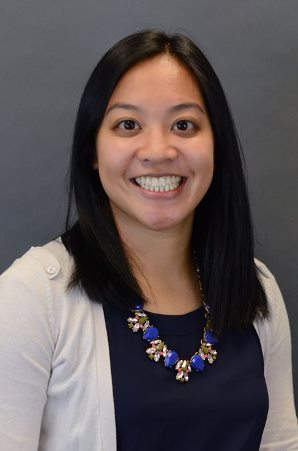The Power of Nonneutral Librarianship | ALA Annual 2017
Can librarians remain impartial and unbiased purveyors of information in this day and age? Not according to the panelists of “You Can’t Stay Neutral on a Moving Train: Making Critical Librarianship Tangible Through Library Programs and Exhibits,” at the American Library Association (ALA) annual conference on June 24 in Chicago. Though many feel that the library should remain objective in the face of controversial issues and simply make materials available to patrons without putting forth an opinion, the academic and public librarians on the panel argued that neutrality is not an option. They discussed critical librarianship—using the library to take a stand on political and social justice issues—and shared how they rely on programs, installations, and exhibits to start conversations about sociopolitical topics, highlight the voices of the marginalized, and challenge accepted narratives in thought-provoking ways.
The panelists emphasized the importance of engaging with patrons and fostering an informed public. Amy Koester, youth and family program supervisor at the Skokie Public Library (IL), discussed a pop-up space called the Civic Lab, which houses materials on six major topics, such as Black Lives Matter, reproductive justice, and climate change. Patrons are encouraged to open up a dialogue with others on these subjects, and they are also given the opportunity to vote on future issues to cover. Koester noted that Skokie’s population is 40 percent foreign born and includes high numbers of refugees. One of the library’s goals for the Civic Lab was to create a safe space for all of the community to honor everyone’s experiences and allow them to converse with one another.
Koester also stressed the need for civic education. She acknowledged that some patrons have limited experience with these issues, and said that simply making handouts and other resources available for people to digest the material and form opinions based on sound facts can be an effective way to facilitate learning. “You need to have good information to make up your mind,” she said. “If you have bad information, someone is making up your mind for you.”
Programs and installations can also be a powerful way to call attention to voices that have long gone unheard. Miriam Neptune, a digital scholarship librarian at Smith College in Northampton, MA, spoke about exhibits such as the Black Unicorn Project, a week-long installation that was the result of a collaboration among the library, activist Bekezela Mguni, and Smith student organizations PRISM and QUINTA. The exhibit spotlighted the literary and artistic contributions of people of color. Smith also hosted the exhibit Undesign the Redline, created by April de Simone, founder of Designing the We. Through the use of time lines, maps, and stories, the project revealed how policies established as a result of the New Deal led to city zoning practices that perpetuated segregation and wealth inequities.
Like Koester, Neptune discussed the importance of community engagement. Smith College’s library is open to the public, and many members of the community, not just students, visited the installation.
The panelists detailed their efforts to work on creative, innovative programs. Sofia Leung, teaching and learning program manager at Massachusetts Institute of Technology Libraries, spoke about Ideate, a daylong project intended to encourage participants to consider solutions to water-related problems, which she helped run while at the University of Kansas in Lawrence. The events included a Hunger Games–esque simulation in which individuals were divided into groups and given numbers; the higher the number, the fewer water resources the group was allowed to obtain. Leung said that a big goal was ensuring that the event was truly inclusive. The library made an effort to reach out to all members of the community—faculty, students, and local residents. Factors such as the need for childcare were also considered.
Annie Pho, instruction librarian for peer services and Powell public programs at the University of California Los Angeles Library, discussed REACT, an artistic project that allowed students at the university to respond to the current political climate through various means of expression, including poetry and photos that document protest efforts such as the Women’s March. Other exhibits included “Diversity and Its Discontents,” which spotlighted the backlash against calls for inclusivity in the traditionally male-dominated sci-fi and video game communities. “American Concentration Camps” featured documents and photographs related to the Japanese internment during World War II. Pho said that this exhibit was a response to the discrimination currently faced by Muslims and that it offered viewers the opportunity to draw parallels between past and present injustices. For her, a successful endeavor means that library patrons are motivated to rethink their assumptions. “Can someone come into the library, get inspired, [become] engaged, learn a different narrative?” she asked.
The panelists also emphasized the emotional and invisible labor of critical librarianship. They outlined challenges, such as skepticism and hostility from fellow staff members, and stressed the need for self-care. Echoing the difficulty that the panelists addressed, an audience member expressed concern about the feasibility of implementing exhibits that question the status quo in areas that are more conservative. How do librarians respond when told they need to represent both sides of an issue? There were no easy answers, but the panelists stressed the importance of continuing to do the work.
RELATED
ALREADY A SUBSCRIBER? LOG IN
We are currently offering this content for free. Sign up now to activate your personal profile, where you can save articles for future viewing













Add Comment :-
Comment Policy:
Comment should not be empty !!!